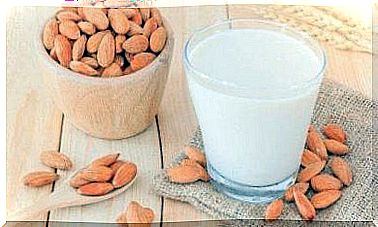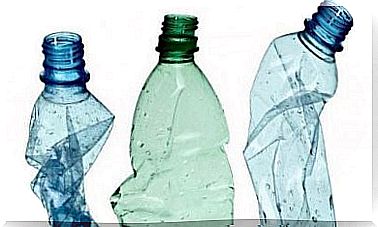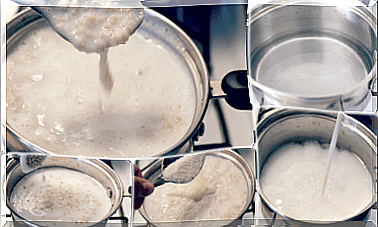Pros And Cons Of Drinking Milk
You have probably always been told that milk is essential for growth. It also helps your bones and teeth stay healthy. However, drinking milk and consuming dairy products can also cause health problems, as there are some disadvantages to drinking milk.
Yet, there is not only bad news. After all, consuming milk is also useful in many ways. We will explain more in this article.
What are the different benefits of drinking milk?

Milk is one of nature’s primary sources of calcium. It is very important for babies. Calcium is essential for the formation and maintenance of bones, among other things.
This food also provides other important minerals. This is why milk is one of the most complete foods available.
Milk is also a raw material for the production of many dairy products, such as butter, cheese, yogurt, cream and curd. Since the most ingested type of milk is cow’s milk, we have decided to focus on its content:
The content of milk
- Water: Most of the contents. Milk consists of 80-87% water.
- Carbohydrates: Lactose is the primary sugar in milk. This drug is one of the reasons why it is risky to drink milk.
- Proteins: The proteins in milk are considered to have high biological value and contain many essential amino acids. Milk consists of 3-4% protein.
- Fat: This makes up up to 3 to 6% of milk. However, this varies greatly depending on the cow’s nutrition and breed. Overall, 90% of the fat in milk consists of triglycerides.
- Vitamins: Among all the vitamins that milk contains, vitamin A, vitamin D, riboflavin (B2), cyanocobalamin and thiamine are especially worth mentioning.
- Minerals: Milk is very rich in minerals, which is most often in the form of salt. Milk contains calcium, iodine, phosphorus, potassium, sodium, chloride, magnesium and zinc.
The various disadvantages of drinking milk
As we mentioned earlier in the article, there are also some disadvantages to drinking milk that should be considered. Some of them are:
1. Lactose intolerance

1 in 2 people are lactose intolerant. As we have mentioned before, lactose is the primary sugar in milk. However, most people do not know that they are intolerant to this drug. They therefore continue to drink milk.
In this regard, a large percentage of the world’s population is lactose intolerant. Thus , lactose intolerance is not a disease but a normal condition. This is because between the ages of two and four, our bodies begin to stop synthesizing the enzyme, lactase, which is responsible for the digestion of lactose.
Since humans usually continue to drink milk, the lactose is not digested and this means that they stay in the intestines where they are fermented by intestinal bacteria. This leads to flatulence, pain and sometimes diarrhea.
Improper absorption of calcium after drinking milk
It makes the pH of the blood acidic to ingest animal proteins. As a reaction , the body uses parts of calcium in the bones to neutralize the acid. It has been proven that consuming dairy products or foods rich in calcium is not a protective factor against the risk of bone fractures.
Although milk contains essential nutrients, you do not need to drink milk to get them. Vegetables are actually some of the foods that contain the most calcium.
3. One of the known disadvantages of drinking milk is that it increases the risk of allergies and asthma
Cow’s milk has three times more protein than human milk . And some of them are hard to digest.
In some people, these proteins (such as casein) adhere to the intestinal lymph vessels, preventing the absorption of nutrients. They can thus cause problems with the immune system, allergies and asthma.
Conclusion on disadvantages of drinking milk
It is important to know if you are lactose intolerant, so as not to avoid any complications related to consuming dairy products. However, consuming this food in moderation (only after ruling out lactose intolerance) is beneficial for the body.









